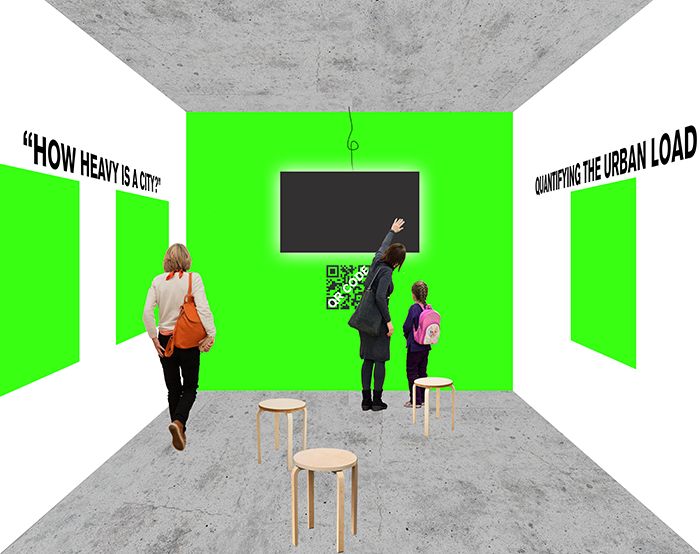Projetos de Investigação e de mestrado da FAUP finalistas ao Prémio Universidades 2025 da Trienal de Arquitectura de Lisboa

Projetos de Investigação e de mestrado da FAUP finalistas ao Prémio Universidades 2025 da Trienal de Arquitectura de Lisboa
15 de abril de 2025
Two projects from the Faculty of Architecture of the University of Porto (FAUP) were selected for the list of six finalists for the 7th edition of the Millennium bcp Lisbon Architecture Triennale Universities Prize.
In the Research category, “The Weight of Words” - a project by FAUP's Centre for Architecture and Urbanism Studies (CEAU), proposed by researcher Maria Neto (lecturer at DECA-UBI), coordinated by Pedro Leão Neto, in collaboration with Jorge Marum - takes as its starting point Dadaab, in Kenya - historically the largest refugee camp in the world - which has served as a research laboratory since 2016. Situated at the crossroads of colonial legacies and ongoing conflicts, Dadaab exemplifies how urban designations carry significant political and social weight. The city of Dadaab, a legally recognised jurisdiction, stands in stark contrast to the surrounding refugee camps which, densely inhabited for over 34 years, lack formal recognition and legal rights, including the right to build permanent structures. This legal dichotomy creates a space of exclusion - a ‘weightless city’ - a metaphor for the precariousness and impermanence of the refugees' living conditions. 'The Weight of Words' invites us to rethink the role of architecture in emergency situations, considering Dadaab as a space for learning and experimentation, where curiosity, indignation and action are stimulated in the construction of possible futures for the reception of displaced populations.
In the Master's category, 'Quantifying the Urban! - proposed by lecturers Clara Vale and Diego Inglez de Souza, in collaboration with students Clara Sprung, Sofia Beltrão, Matilde Ferreira and Ricardo Mancini - explores the question “What is the weight of a city?”, redefining urban weight as a fusion of objective data and subjective experiences. To this end, a formula is proposed that quantifies physical weight (built environment, nature and population) and consumption weight (use of resources), simultaneously integrating quality of life and individual perception. Five cities in Portugal serve as case studies, where visitors can contribute, through an interactive system that generates data in real time, to the reformulation of the urban weight of these cities through their experiences. Rather than looking for absolute answers, the project invites debate on how cities are measured and lived in.

The selected projects will now be developed in collaboration with the Triennale's curators as part of the main exhibitions - Fluxes, Spectres and Lighter - scheduled for the opening days of the event, between 2 and 4 October. The winners of each category - Master's and Research - will be announced at that time and will receive an award designed by Álvaro Siza, produced from marble waste from Estremoz.
The shortlist for the Lisbon Architecture Triennale Millennium bcp Universities Prize was officially announced on 24 March, during the presentation of the Triennale 2025 'How Heavy Is a City?
A total of 35 applications were accepted from 18 universities - seven of them Portuguese - spread across various geographies. The selection, made by a collective made up of Carla Leitão, Cruz Garcia, Dubravka Sekuliĉ, Nick Axel and the Triennale 2025 curators themselves, values critical and open approaches to current architectural practice, in line with the motto launched this year: Make it Lighter.
More information